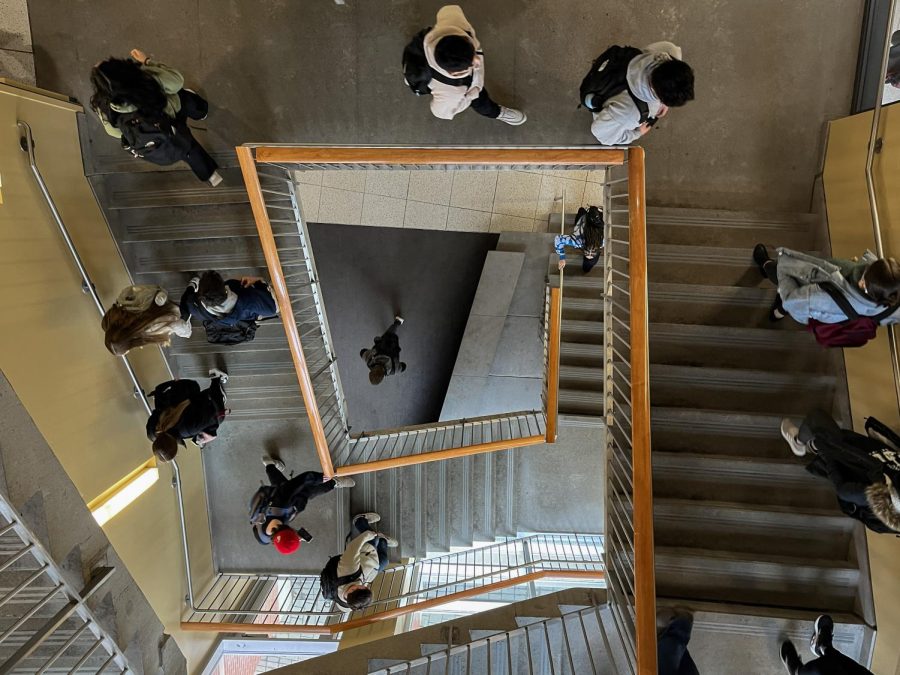‘Tis the season to be gloomy
College students at risk of seasonal depression, WSU mental health resources
Out of state students that are used to different climates are at higher risk of developing symptoms
January 12, 2023
During the winter months, when the sky darkens and the temperature drops, the lack of sunlight can cause some people to experience negative emotions. This change in mood could be caused by Seasonal Affective Disorder, commonly known as seasonal depression.
Symptoms of SAD include oversleeping, overeating (particularly carbohydrates), weight gain and social withdrawal, according to the National Institute of Mental Health.
Loren Brown, WSU Counseling and Psychological Services associate and clinical director, said symptoms of SAD usually begin in the fall, get worse in the winter and as the days start getting longer during the spring and summer, symptoms improve.
Senior English major Levenson Policarpio said that he experiences symptoms of SAD during the winter months, especially on WSU Pullman’s campus.
“When it’s cold and dark like this I feel significantly less motivated which makes my job as a student even more difficult,” Policarpio said.
For most students juggling college classes, extracurriculars and work while prioritizing mental health is not an easy task, Policarpio said. Most students with SAD experience the worst of it during fall semester finals, an important week for college students, that takes place in mid-December, he said.
“There are mental health resources here at WSU but I don’t feel safe or comfortable enough to take advantage of them,” Policarpio said. “Mental health resources need to be free.”
WSU Counseling and Psychological Services at Cougar Health is an available resource for information about and assistance with SAD symptoms. Students at the university receive 12 free counseling sessions a year as part of their tuition, after that, students need applicable health insurance or pay money for more sessions.
Out-of-state students that are used to different climates are at higher risk of developing SAD symptoms, Brown said.
“Washington state is far north of the equator which means winter days are shorter,” Brown said. “Students from out of state that aren’t used to Washington are trying to adjust to the weather changes while they’re also just trying to be a student.”
Students that are consistently impacted by symptoms of SAD may look into treatment options such as medication or light therapy. Light therapy is used to treat SAD since it is connected to changes in the amount of light which is one of the reasons it can affect our circadian rhythms.
“If someone notices they’re feeling down and they recognize a pattern forming between the season and their mood, prioritizing social connection, sleep, good food and exercise is a good way to counteract those feelings,” Brown said.
Friends and family that worry about someone exhibiting symptoms of SAD should reach out to their loved one to help them feel loved, supported and understood before their situation progresses, Policarpio said.
“Seasonal depression may seem temporary, but can be dangerous if left untreated,” he said.
WSU Counseling and Psychological Services offer services such as individual and group therapy, psychological assessments and psychiatric services. Those interested in using these services can schedule an initial appointment here.
Some additional mental health resources in Pullman are Palouse River Counseling and Palouse Psychiatry and Behavioral Health.











